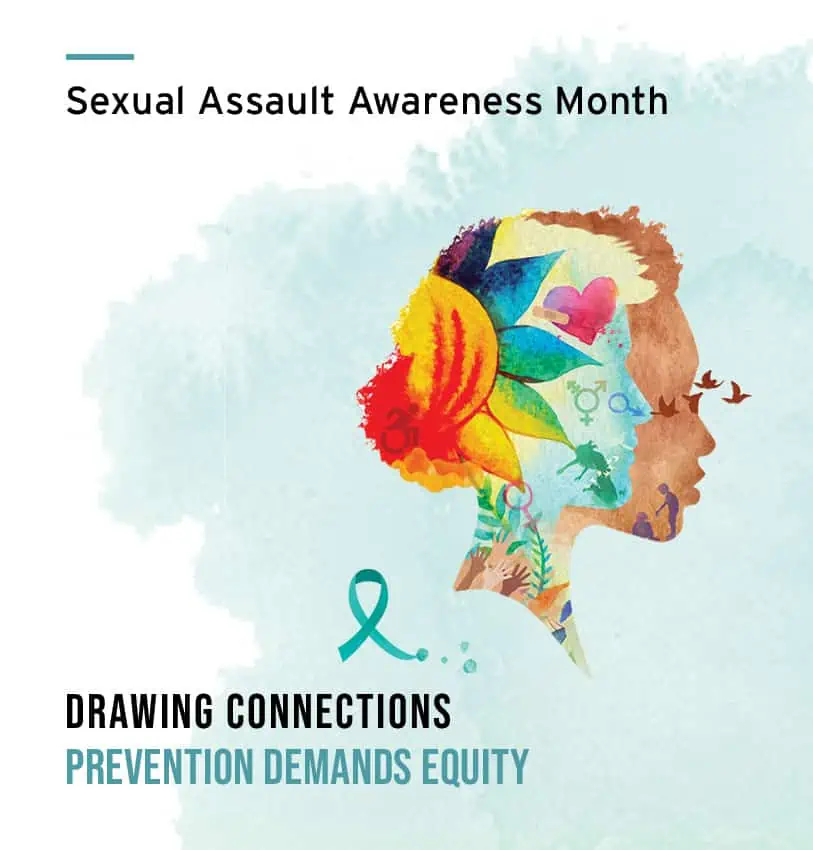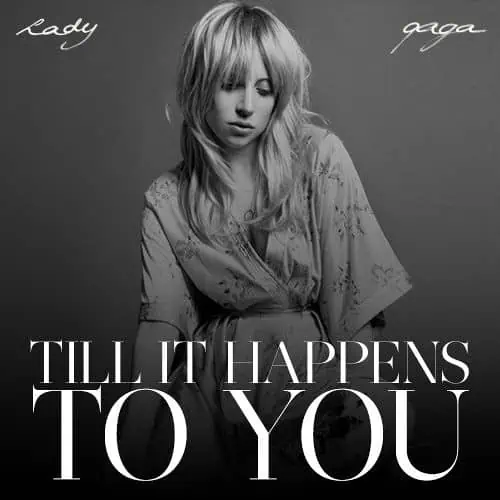
An Autistic Woman’s Experience with Sexual Assault
Content Warning: Discussion of sexual assault, self-harm, and suicidal ideation.
Spanish version available here (Lee en Español aquí).
My name is Kayla Maria Rodriguez, and I co-chair AWN’s Executive Advisory Board on Equity, Justice, and Representation. I am a disabled, Latine, autistic, lesbian, young woman, living in the US South, diagnosed with Type 1 Diabetes, PCOS, ADHD, and other mental health disabilities. AWN has been a crucial community to me, and I’ve been proud to contribute to their work as an advocate and regular writer for their blog.
This month is not only Autism Acceptance Month, but it is also Sexual Assault Awareness Month. The theme of Sexual Assault Awareness Month 2023 is “Drawing Connections: Prevention Demands Equity.” This April’s campaign calls on all individuals, communities, organizations, and institutions to change ourselves and the systems surrounding us to build equity, justice, and respect as a key part of stopping sexual assault.
Being a sexual assault survivor and disabled autistic Latina means I understand at a very personal level the connections between the discrimination my communities face, and how that makes people like me more vulnerable to sexual assault. By sharing my story here, I want to help others in a similar situation. I also want to educate advocates who may not have these experiences on how they can better support survivors and work to prevent sexual assault as part of intersectional social justice work.
My Story
Next month, on May 2, 2023, it will be 10 years since I was sexually assaulted by an abusive ex-family member who was in my life for 12 years. I was 16 years old when it happened to me.
Even though I don’t remember much of what happened in 2013 or every year that came before and followed it, I have a crystal clear memory of that day. I won’t describe exactly what happened, but I blamed myself and others who didn’t protect me for a long time afterwards. I didn’t have the language to understand or talk about what happened then, which made it more isolating, but I know now that it was definitely sexual assault.
Police Interactions
Afterwards I decided to report my experience to the police. Yet when I reported it, it was confusing and difficult to know what to say or terminology to use. I was forced to tell my story with a very clear narrative that I lacked the ability to articulate at the same time. My difficulty in describing the situation while still actively experiencing the trauma of it made my interactions with the police really difficult. Systemic racism, sexism, and ableism is built into policing in this country, and as a Latine autistic woman, I felt scared by these police interactions even if I didn’t fully understand why at the time. Initially the police said they would find my abuser and bring him to justice. Yet after a few months they said they couldn’t do anything because I was 16, which was the age of consent in Georgia. The whole situation was dehumanizing. Together with witnessing #BlackLivesMatter, which was happening at around the same time, these experiences were formative to me understanding the way that police and the criminal justice system enforce white supremacy and oppression.
What happened to me was a horrific form of injustice. But today I do not believe that policing is the solution to addressing domestic violence and sexual assault. I don’t know exactly what should replace our current criminal justice system, but I do not believe policing is the way. A 2015 survey by the National Domestic Violence Hotline found that about 75 percent of survivors who called the police on their abusers found police unhelpful, and 25 percent reported it made them feel less safe. That’s one reason I appreciate how AWN has hosted many conversations about abolition and alternatives to policing. Here’s a guide with alternatives to calling the police if you experience domestic violence or sexual assault. The Network/La Red offers a survivor-led hotline for queer victims of domestic abuse. I also recommend this guide for disabled people to know your rights in case you do interact with law enforcement.
Sexual Assault and Mental Health
I had lived with depression and anxiety for years before the sexual assault, but that experience made those conditions much more difficult to manage. Afterwards I was diagnosed with PTSD and OCD. This also led to self-harming behaviors and suicidal ideation. I know this may be difficult to read about, but I want to talk about it so others know they’re not alone. And if you experience suicidal ideation and/or are in crisis, in addition to the domestic violence resources I listed above, you can also contact the National Suicide Prevention Hotline by simply calling 988 — that said, there is a risk they may involve the police, so you may want to read this guide about what you should know before calling 988.
Autistics need more resources made specifically for us to help us deal with our trauma. Many autistic people experience trauma on a daily basis simply by living in a world that wasn’t made to accept and accommodate us. Autistic, neurodivergent, and other disabled people are also more likely to experience sexual assault than non-disabled and neurotypical people. And a study published in 2018 found that women with autism had nearly three times the odds of having experienced sexual abuse, and those with ADHD doubled their odds of sexual abuse. And as an LGBTQIA+ woman, and specifically as a lesbian, our community experiences sexual assault at higher rates. 46.4% of lesbians compared to 43.3% of heterosexual women reported experiencing sexual violence other than rape during their lifetimes, according to the National Sexual Violence Resource Center (NSVRC).
Setting Healthy Boundaries as an Autistic Person
Most autistic children are raised in ways that discourage us from setting healthy boundaries and deny our ability to demand consent. Most models for parenting autistic children are not about supporting those children, but instead forcing them to conform to neurotypical norms. My parents didn’t encourage me to set healthy boundaries. One of the most dangerous methods of doing so that’s very widespread is Applied Behavioral Analysis, aka ABA.
I went through ABA when I was three, and while I don’t remember details I know that it was coercive. I was rewarded for good behavior by M&Ms. Autistic people who go through ABA aren’t treated as fully human. They are simply trained to follow commands. We aren’t taught to say “no” to uncomfortable situations, in fact we’re taught the opposite: to comply with adults forcing us to act in ways that make us feel deeply uncomfortable and unsafe.
I’ve often heard the phrase “no is a complete sentence,” which is true. And there are multiple ways to say no. It’s ok to set boundaries and you don’t ever need to apologize for them.
Healing Looks Different for Everyone
Even though it’s been almost 10 years since I was sexually assaulted, I’m still not “healed” from it.
I wish I can get the perpetrator out of my head, and often feel that other survivors of sexual assault have been better able to “move on” than me. However, I have to remember that everyone is different so that means everyone who goes through it will deal with it in different ways and in different time spans.
Lady Gaga openly talking about sexual assault inspired me to share as well. She made a song titled “Till It Happens To You” for the documentary called The Hunting Ground which is about sexual assault on college campuses. It came out two years before the #MeToo and #TimesUp movements started, and she was nominated for an Academy Award for Best Original Song. When I saw her perform this at the Academy Awards in 2016 with a whole bunch of sexual assault survivors, I cried. I cried because I resonated with the lyrics and seeing those survivors on stage made me realize for the first time that I wasn’t alone. Here are some of the lyrics below:
You tell me it gets better, it gets better in time
You say I’ll pull myself together, pull it together
You’ll be fine
Tell me what the hell do you know
What do you know
Tell me how the hell could you know
How could you know
Lady Gaga, Till It Happens To You

No one can fully understand your experience. If it’s been years for you and you’re in the same position as me, you’re not alone. Don’t compare yourself to other people who have been through sexual assault and their progress. I can give this advice to you, but it’s still hard for me to take my own advice.
As an autistic person, I believe we may also experience healing and recovery differently than neurotypical people. And that’s okay, we just need support and resources made for us to get there.
One of the lingering effects of my assault is that I regularly experience maladaptive daydreaming, which is when you daydream so vividly and frequently that it negatively impacts your life. My abuser appears in these daydreams all the time, and I fantasize about getting justice and wishing that he knew the pain he put me through. Even though I have these daydreams every day so I think about my abuser every day, it doesn’t mean I haven’t made progress. I also have flashbacks sometimes where anything can remind me of him and it’s annoying. One of the ways I handle these things is through autistic stimming. I’m not where I want to be yet, which is to think about him way less than I do now and stop these daydreams and have less flashbacks, but I have made a lot of progress in the 10 years since it happened to me. I know I’ll get where I want to be someday.
I want to go back to “normal” but I have to accept that this is my new “normal.” I can’t go back in time to the person I was before it happened, because the experience changed me and that’s okay as well. I just have to adapt.
Sexual assault isn’t your fault. It was never your fault, no matter what you wore or how you acted or if you’re confused by your own emotions around the experience.
You don’t have to forgive. You can if you want to. Don’t let anyone force you to forgive in order to heal. Healing and forgiving someone for harming you are two different things. Some people are helped by sharing their story publicly, like I have done, and others choose to keep it confidential. Maybe journaling can help, as it has helped me. Everyone’s path to recovery is different. Yet as I mentioned in this post, there are resources for you, including confidential counseling, peer support groups, and crisis hotlines. And if you’re not a survivor but want to be an ally, I encourage you to re-share stories like these and educate yourself about sexual assault. Thank you for listening to my story.
